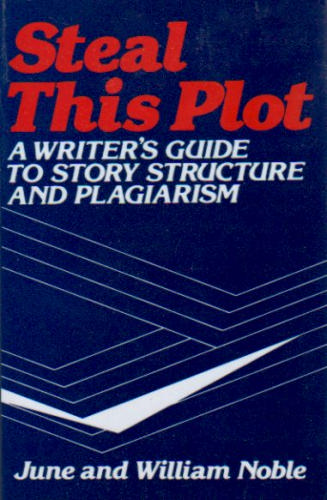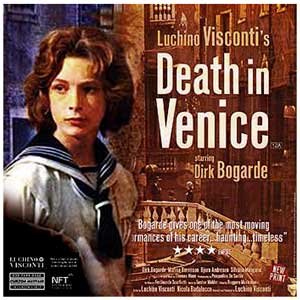 One of the benefits of parenthood is getting to revisit films, cartoons, and stories that have been long forgotten from childhood.
One of the benefits of parenthood is getting to revisit films, cartoons, and stories that have been long forgotten from childhood.Today, we saw a matinee of Bugs Bunny cartoons, and I was struck by the variety of postmodern sensibility (that's a high falutin' word for this fare, and yet it's accurate).
There's an authorial consciousness and meta narrative that's noticeably at play in many of the Bugs Bunny cartoons. In fact, the opening of this film started out with the well-known ending, "That's All Folks!" which was then corrected by Bugs to say, "That's Not All Folks!"--a phrase that included copyediting marks. So we know from the start that the narrative is all a game, that beginnings and endings (or any traditional narrative arc) shouldn't be taken seriously, and that Bugs will always toy with our expectations.
One episode stood out spectacularly. In Duck Amuck (created in 1953), Daffy Duck is exquisitely tortured by his creator. In the course of the film the animator messes with and changes the scenery, interchanges props, replaces the soundtrack, mutes Daffy, and even erases and physically alters Daffy himself. For example, as Daffy strolls with a ukulele, singing a lazy, tropical song, he's tossed into a variety of climates, ending up in the snow (you can almost hear the animator laughing--at Daffy and in celebration of his artistic, cruel freedom). Daffy keeps trying to live--and entertain--but he can't maintain any constancy or control of his surroundings, or even his body.
The cartoon reminded me of Nabokov's approach to characterization--the way he kept his character under his, or rather God's, thumb. Torture them. Make them uncomfortable. Give them no joy. No freedom. Daffy kept attempting to liberate himself--to be a naturalistic, realistic character, in short, to serve the expectations of the audience--but he was ruthlessly denied such a life.
An interesting tension in the cartoon, in fact, is the audience's desire to see Daffy entertain in a straightforward way and the pleasure of seeing him thwarted and frustrated.
The cartoon brought up questions of identity as well. According to Wikipedia, Chuck Jones, the
director, is asking, "Who is Daffy Duck anyway? Would you recognize him if I did this to him? What if he didn't live in the woods? Didn't live anywhere? What if he had no voice? No face? What if he wasn't even a duck anymore?" He's always Daffy, of course, even without a body or voice. Except that he's also something else: a character, a fluid and malleable identity who, well, loses himself, as we all do, I suppose.
The cartoon ends by revealing the sadistic creator, Bugs Bunny, who appropriately says, "Ain't I a stinker?" Yes, he is a stinker--especially since he says this with no remorse. It's a funny little line that says so much. Many postmodern narratives could be summed up with this line, in fact. Yes, Bugs, you're a stinker.

 What interests me most about Wes Anderson is that his stories seem to originate from his props—the story serves the prop, in other words, instead of the prop serving the story, as is the usual tendency.
What interests me most about Wes Anderson is that his stories seem to originate from his props—the story serves the prop, in other words, instead of the prop serving the story, as is the usual tendency. I just saw Edward Albee’s “Peter and Jerry at Second Stage in New York City. The play pairs “The Zoo Story,” his first play (written in 1958), with “Homelife,” a companion piece written six years ago.
I just saw Edward Albee’s “Peter and Jerry at Second Stage in New York City. The play pairs “The Zoo Story,” his first play (written in 1958), with “Homelife,” a companion piece written six years ago. Denis Johnson says it all in this brief
Denis Johnson says it all in this brief  Since
Since  I should have trusted my instincts. When I first read the excerpt from
I should have trusted my instincts. When I first read the excerpt from  You might be tempted to read Lydia Davis's stories in passing, to treat them as quirky, funny entertainments. They are so short, after all, and you can page through one piece after another almost as if you're reading a joke book.
You might be tempted to read Lydia Davis's stories in passing, to treat them as quirky, funny entertainments. They are so short, after all, and you can page through one piece after another almost as if you're reading a joke book. There are so many basic plots—ready to simply snatch as I’ve recently learned—but I’ll be damned if I can write a good one.
There are so many basic plots—ready to simply snatch as I’ve recently learned—but I’ll be damned if I can write a good one. I recently read
I recently read  “Can creative writing be taught?” That's the question Francine Prose starts with in her recent book,
“Can creative writing be taught?” That's the question Francine Prose starts with in her recent book, 

